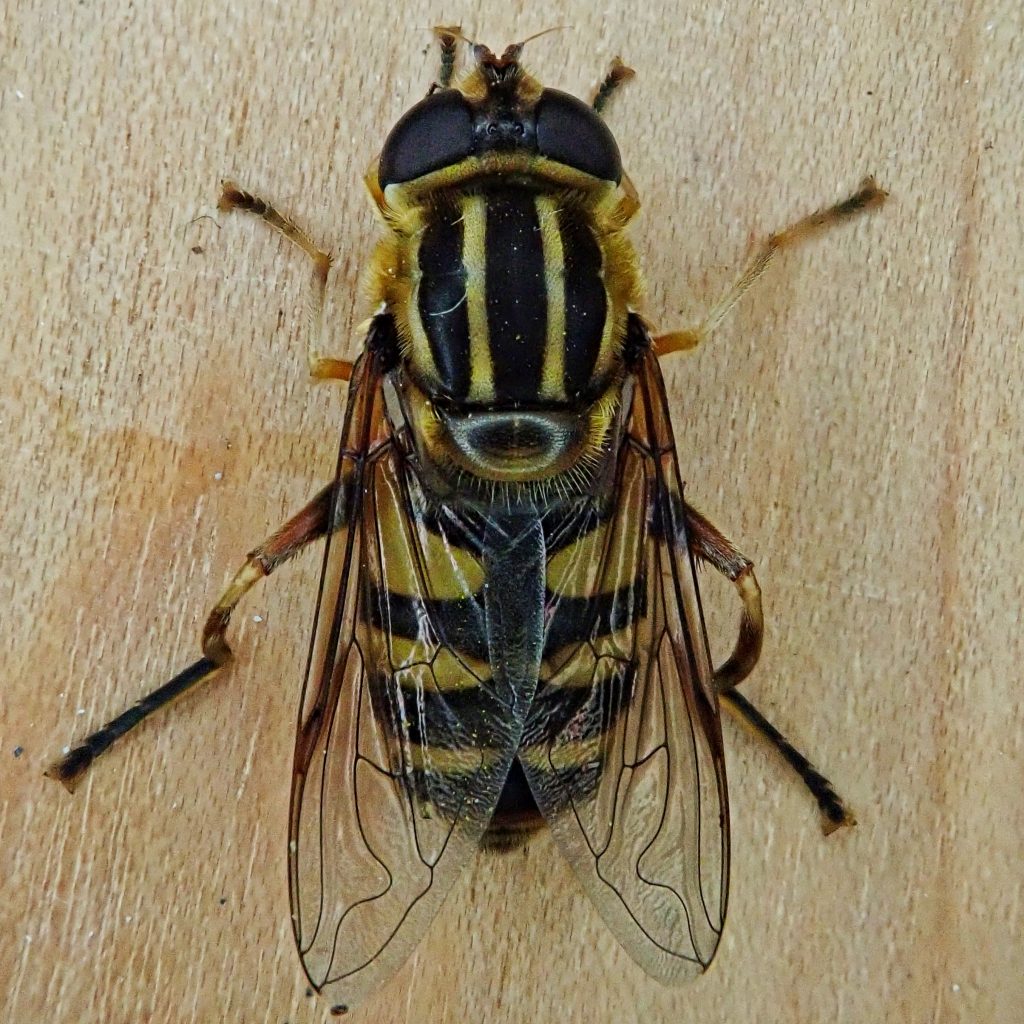
There is something particularly fascinating to me about the members of the family Syrphidae (flower flies or hover flies). Part of it is their mimicry, part of it is their colors, and part of it is that, between their hovering and their relative quiescence while nectaring, they are easy to observe.
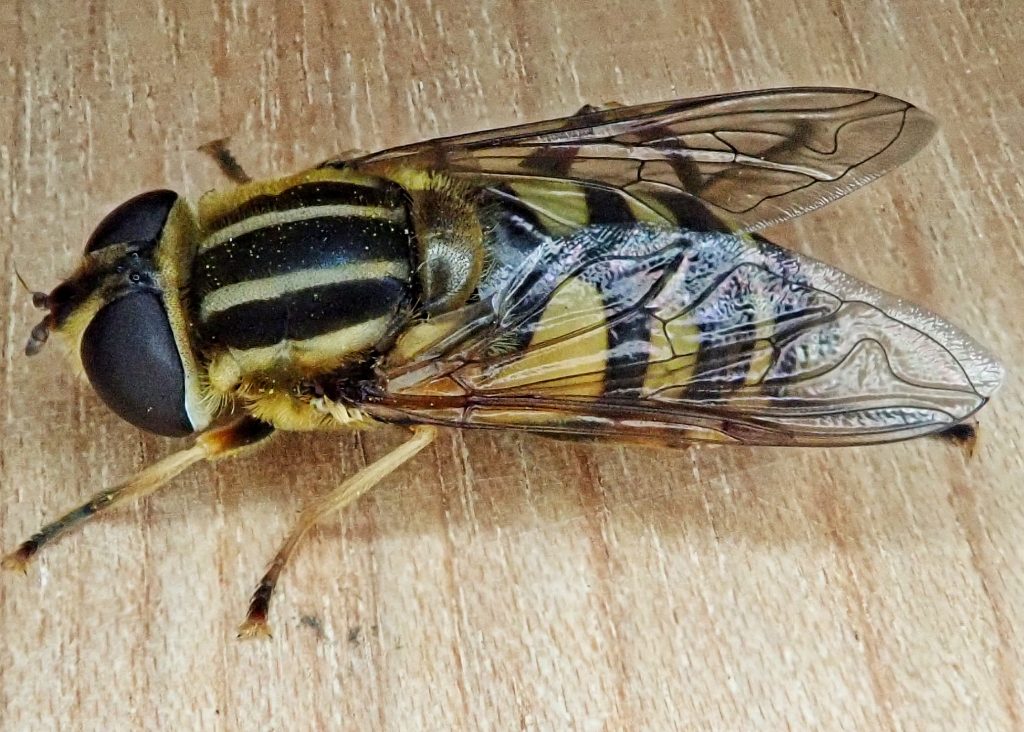
But they are very difficult to identify to species from a photograph alone, especially one taken with magnification while they are on a plant. Even these close ups taken after refrigeration don’t provide the salient details for species identification.
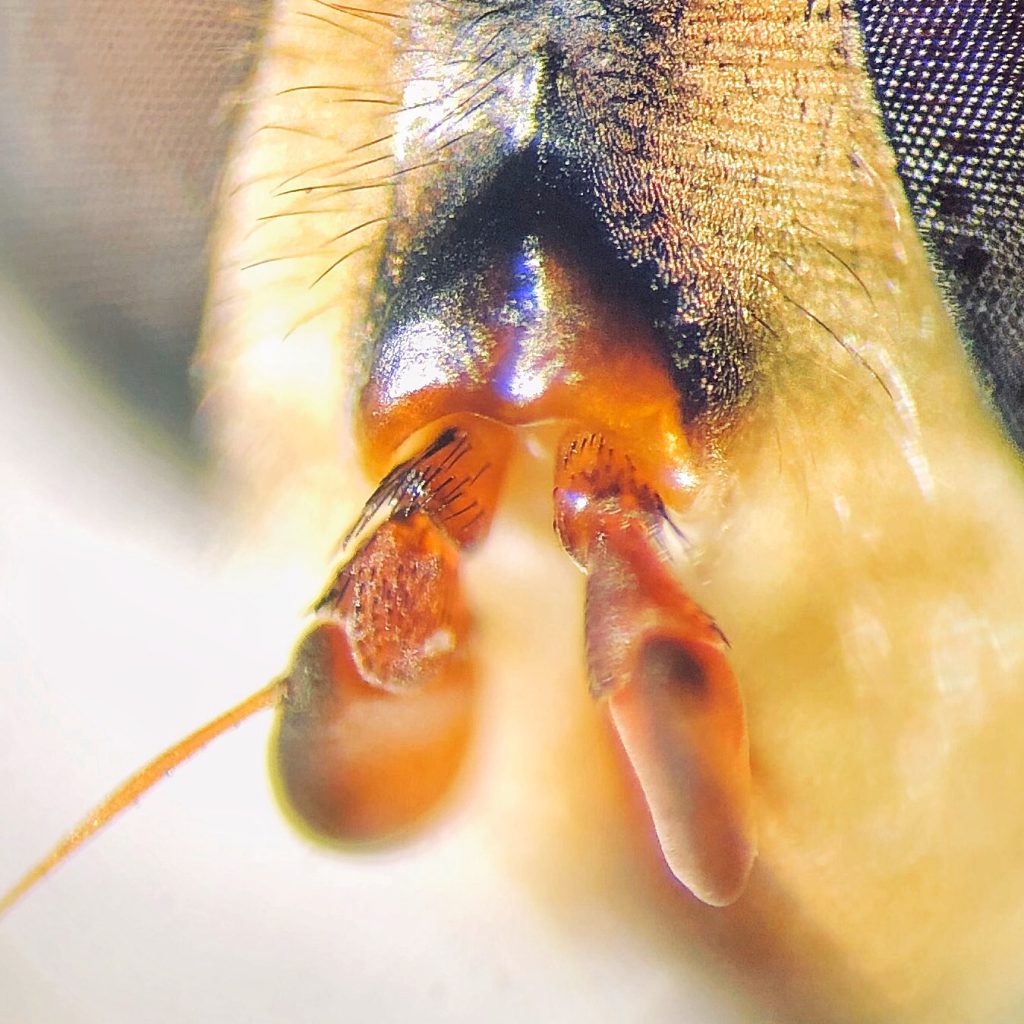
Which in this case is the orange antennal scape shown above (it is black in all other species of Helophilus). Getting these two Syrphidae to genus was fairly easy. Only Helophilus sp have the combination of large size (11-15mm), long pterostigma, lengthwise thoracic stripes and complete transverse abdominal stripes.
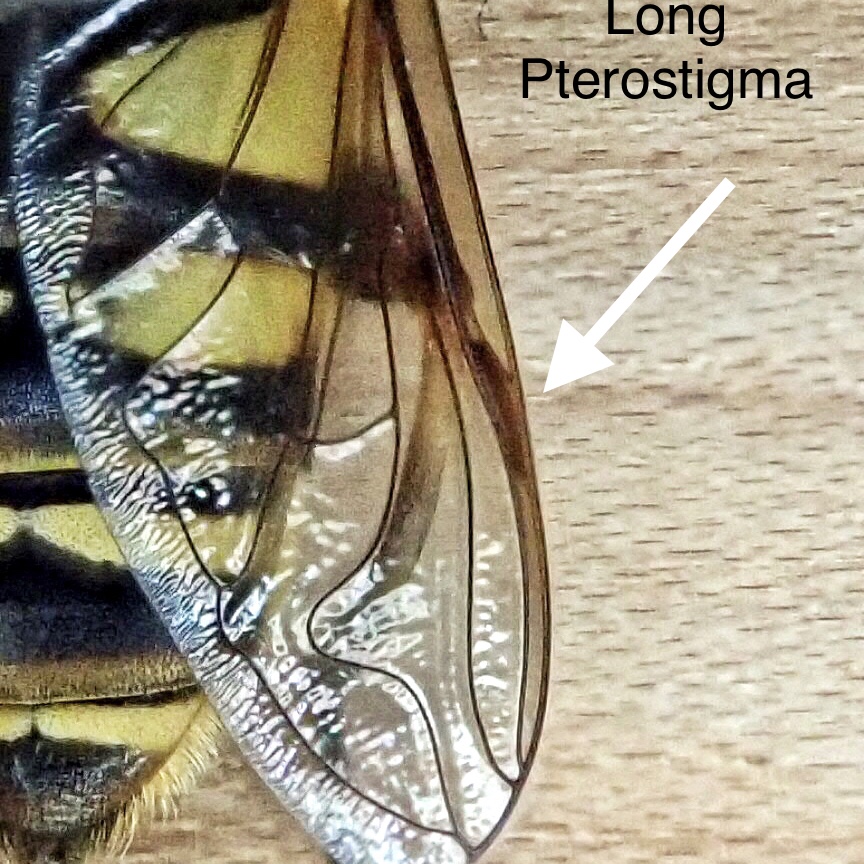
The genus name Helophilus means ‘Marsh lover’, and the species epithet fasciatus means ‘banded’. This is a common species near water with abundant emergent vegetation. Eggs are laid on overhanging vegetation, and the rat-tailed larvae fall into the water after hatching, where they are filter feeders on particles of decaying organic matter, mostly vegetation.
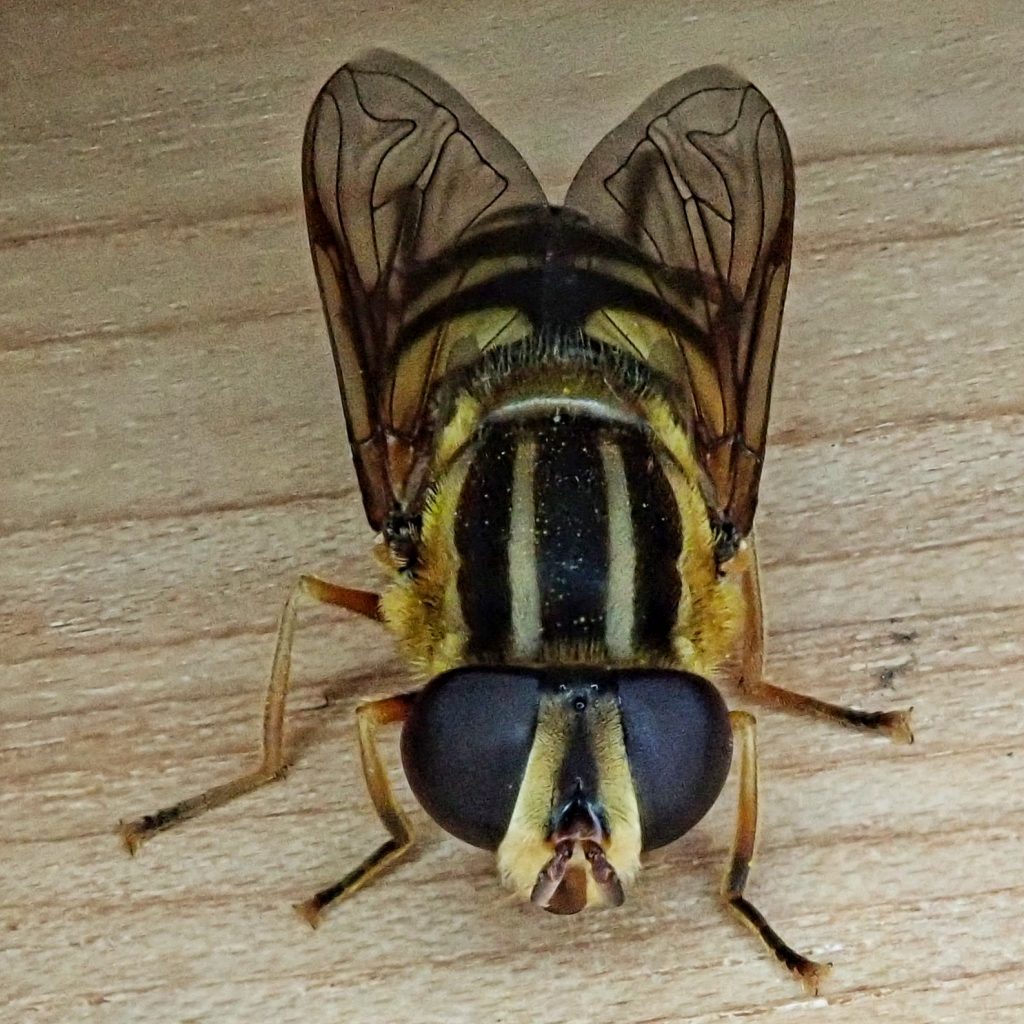
The adults nectar at a variety of flowers, and are important pollinators. These were found at asters. They fly from late March into October. They can be found region wide, but are more common west of the Cascades.
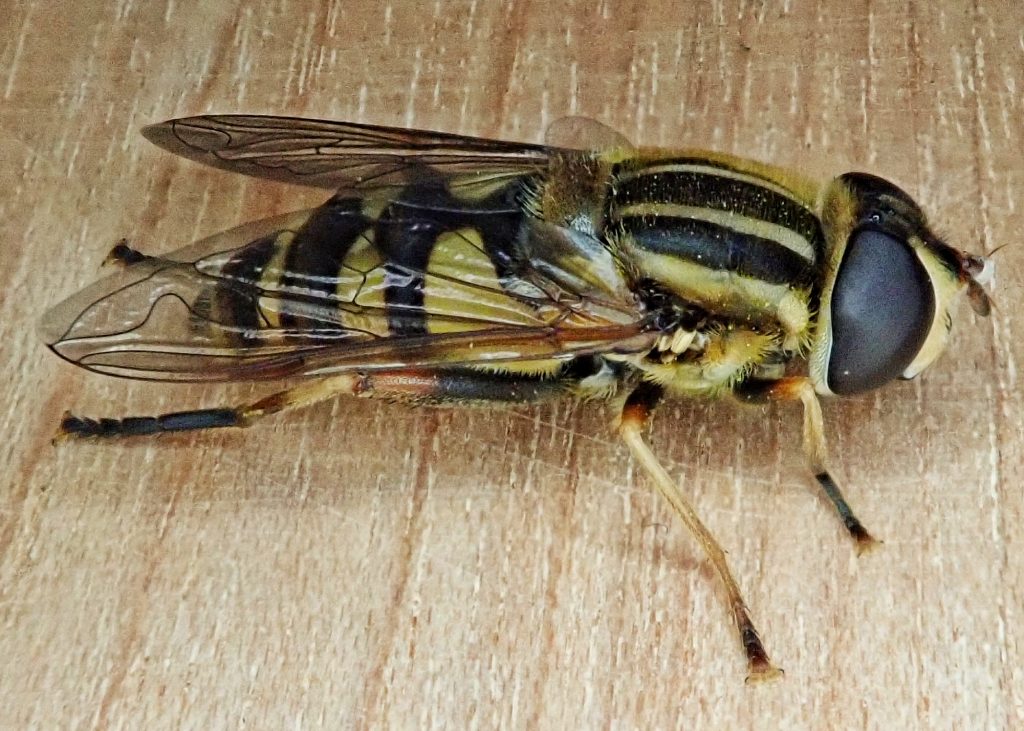
https://bugguide.net/node/view/48957
https://livingwithinsects.wordpress.com/2011/07/18/large-hover-fly/amp/
Size- 11-15mm
Habitat- near water with decaying vegetation
Range- Region wide
Eats- Larvae filter feed on decaying organic matter; adults feed on nectar.
Flight Season- Late March into October
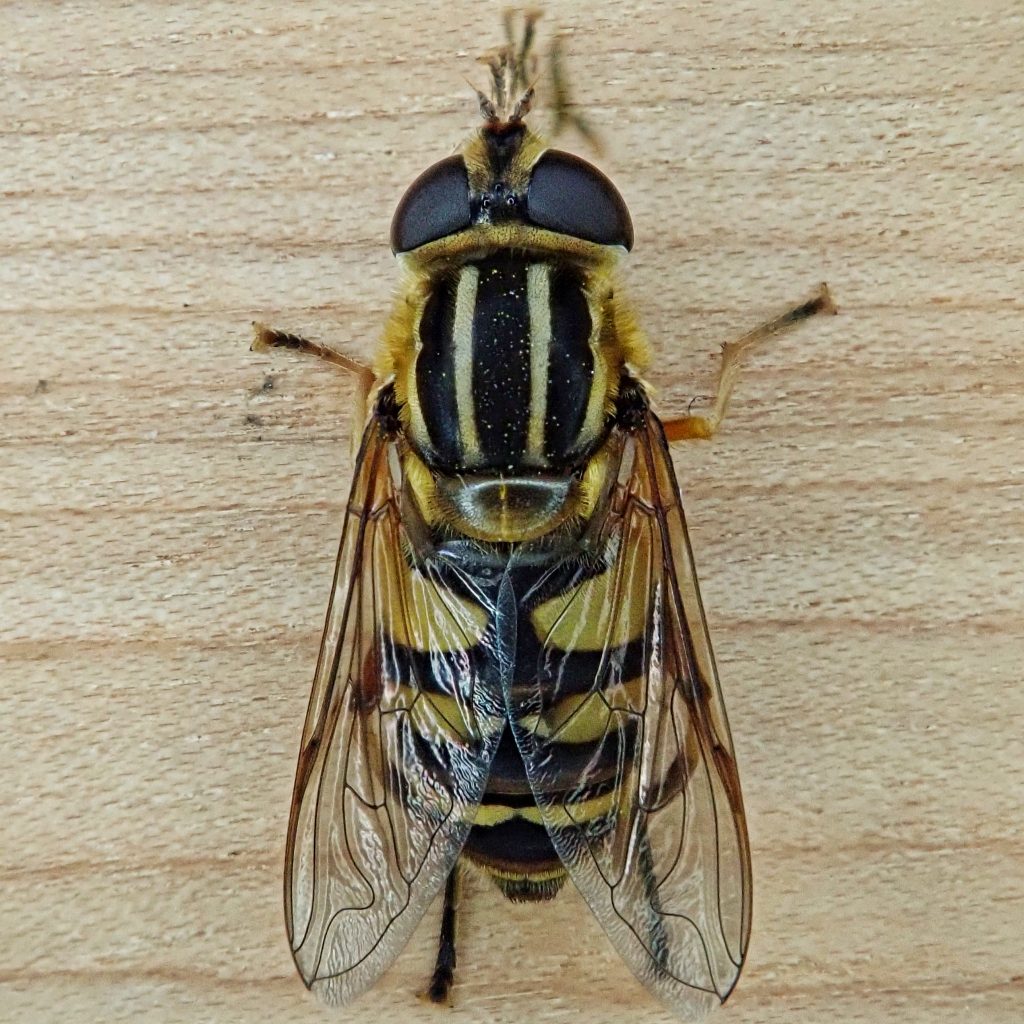
🤨 did I find him on the floor?
Nope😀That was a bee 🐝